Dublin City Council has said its plans to bring in a permit system to regulate volunteer food services for the homeless in the capital is not designed to ban so-called soup kitchens.
However, those providing the service say the new system threatens their existence and is an attempt to put them out of public view.
It is estimated that around 24 volunteer food services are operating on the streets of Dublin, offering food to those who are homeless and experiencing food poverty.
Among them is the Grubs Up Homeless Service which operates outside the GPO on O'Connell Street, and estimates it feeds 250-300 people a night.
Mags Rickard, a former teacher from Donaghmede, has been feeding the homeless for around a decade and said she is worried about the introduction of a permit system.
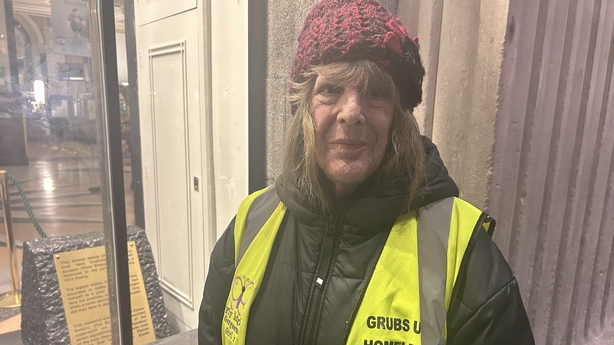
"Do they realise what a vital service we're giving? The people behind me, they're somebody's son or daughter or mother who have hit hard times.
"They're here on the streets for a whole range of reasons and I feel they deserve our help. We're not sure exactly yet what those by-laws will be, but please God, we'll be able to navigate them and keep doing this," she explained.
'They're just trying to push us into the dark corner'
Diarmuid Mac Douglais, who is known as Dougie, runs the Éire Nua Food Services which also provides food and clothing to people outside the GPO.
He said he believes the council wants to put homeless food services out of public sight.
"One of the main things that the Dublin Region Homeless Executive (DRHE) were looking for was that we all register as charities. It's unobtainable.
"People that were looking for charity status were five years waiting for charity status. They're not going to give 24 different groups charity status to serve food anywhere. I'm not a fool."
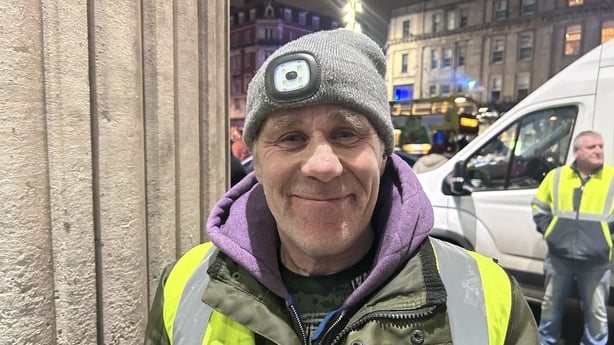
He continued: "I can see that, as such, we're an eyesore and this is one of the main places of visitation for tourists coming into Dublin, so it does, it looks bad and I acknowledge that.
"They're just trying to push us into the dark corner somewhere.
"Dublin City Council acknowledged the need is there and we're filling a need that is not being filled by the registered charities and by the State itself. So there has to be a compromise somewhere."
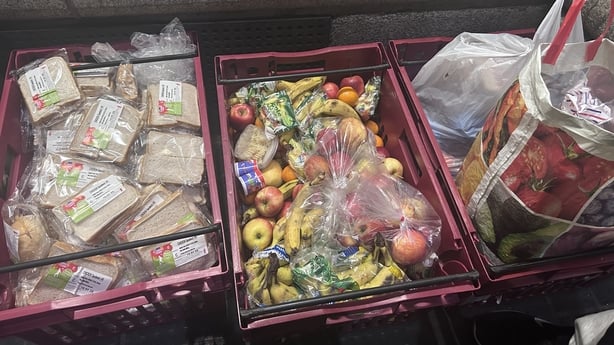
Service users also concerned about impact
Joanna Daly, who is originally from Ballymun but now lives in Dublin city centre, said the support she gets from the soup kitchens is vital.
"I come here obviously because I'd be hungry. Sometimes I come here because there's some lovely people here as well.
"I know I'm safe and I could talk to the members of staff and if I'm having any problems, they will give me the numbers I need to put me in the right direction.
"I live in a small DCC flat and it's freezing. So I'd rather be here because it's warmer here than it is there."
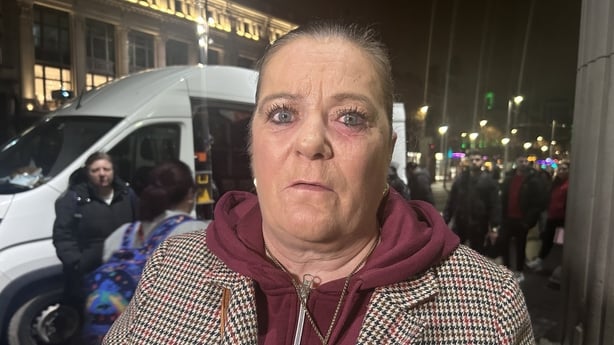
'Mary', 41, who is from Finglas, is living in a homeless hostel with her children and grandchildren, said she would go hungry without the soup kitchens.
She outlined: "You get hot food, curries, coddle, things like that. If you stop the soup run, people are going to go hungry, because we just can't live on the dole.
"These are the only people that help people, food wise, health wise, clothes wise."
James Curely from Balbriggan said he comes to the GPO for the quality of the food: "I'm here at the soup run to see can I get decent food because what the hostels are giving out, fair play to them and all, but it's all microwaved."
"If these go, it'll be a second famine"
'Barry', who is originally from a border county, said he would starve without these services.
"The people running these soup runs are exceptionally good. They're ordinary, working class people like myself. It's a disgrace.
"People know where these are now. People can actually say, 'Right I'll go here tonight for something to eat'. If these go, it'll be a second famine. It'll be a second famine'.
"This is not the country I grew up in. The men of 1916 outside this building wouldn't have bothered if they could see the state of the country now."
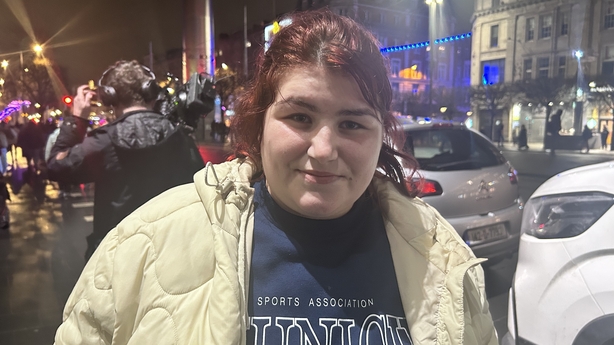
Janine Murray, 21, originally from Tallaght, lives in a tent with her partner. She said she believes the soup runs are a safe place for people.
"What the council is doing, I think, is disgraceful. What do they expect us to do, starve to death? Or robbing shops and get arrested because that's what's going to happen. It's gonna start war.
"Are we going to eat scraps on the ground? There were times that we had to eat from bins. It is a safe environment. There's police across the road watching us. There's nothing dangerous about it.
"Everyone's lining up, everyone's doing what they're told to do, everyone's getting fed and everyone's happy and warm. We'd be lost without it. We'd be dead."
Restrictions for a safer environment
The DRHE said the by-laws will not ban on-street services but will ensure they are provided in a safe environment.
They will set out operating hours, locations and other restrictions and they are due to be finalised before the summer.
Fine Gael Councillor for Cabra-Glasnevin Colm O'Rourke is among those who are in favour of the by-laws.
He ran a soup kitchen for three years when he was a student and said he believes a permit system will make services better.
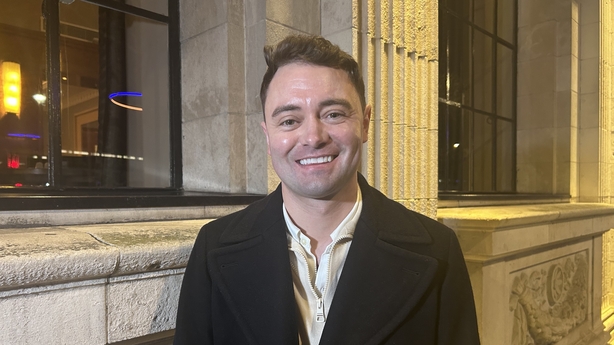
"The idea from Dublin City Council management is to make sure that the services in place are of the highest standards, that there's a safe environment for people but also that the food is safe and nutritional.
"There are some concerns that there aren't standards in place to protect children and also just the safety of people and that there might be some anti-social behaviour as well."
He continued: "Dublin City Council is also exploring the possibility that there might be some indoor facilities provided for these services. It would provide a more dignified approach to vulnerable people who might be in a moment of crisis.
We need your consent to load this rte-player contentWe use rte-player to manage extra content that can set cookies on your device and collect data about your activity. Please review their details and accept them to load the content.Manage Preferences
"I set up a soup run myself and so we understand and appreciate all of the work that volunteers put into this.
"One of the biggest frustrations I always had was the red tape in place. As a councillor, I will make sure that the by-laws that are presented before us don't burden these volunteer organisations too much.
"I will make sure the by-laws actually improve the service and if it was a case that the by-laws weren't up to scratch, I would vote against them.
"But I believe what the council are trying to achieve here is to improve the service, not to stop it."






